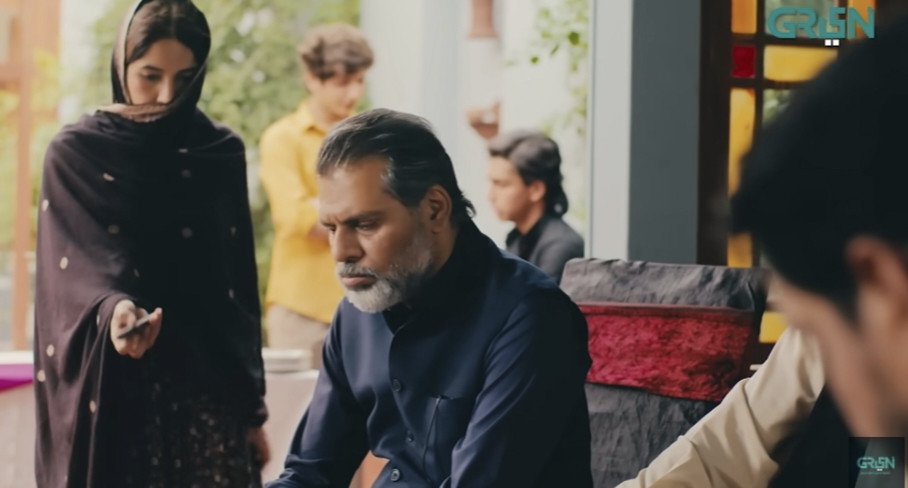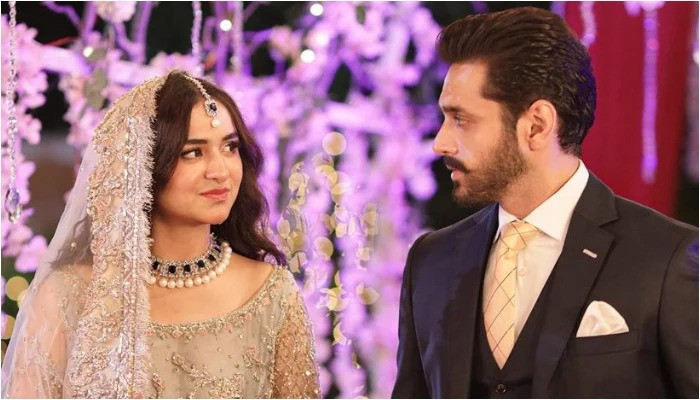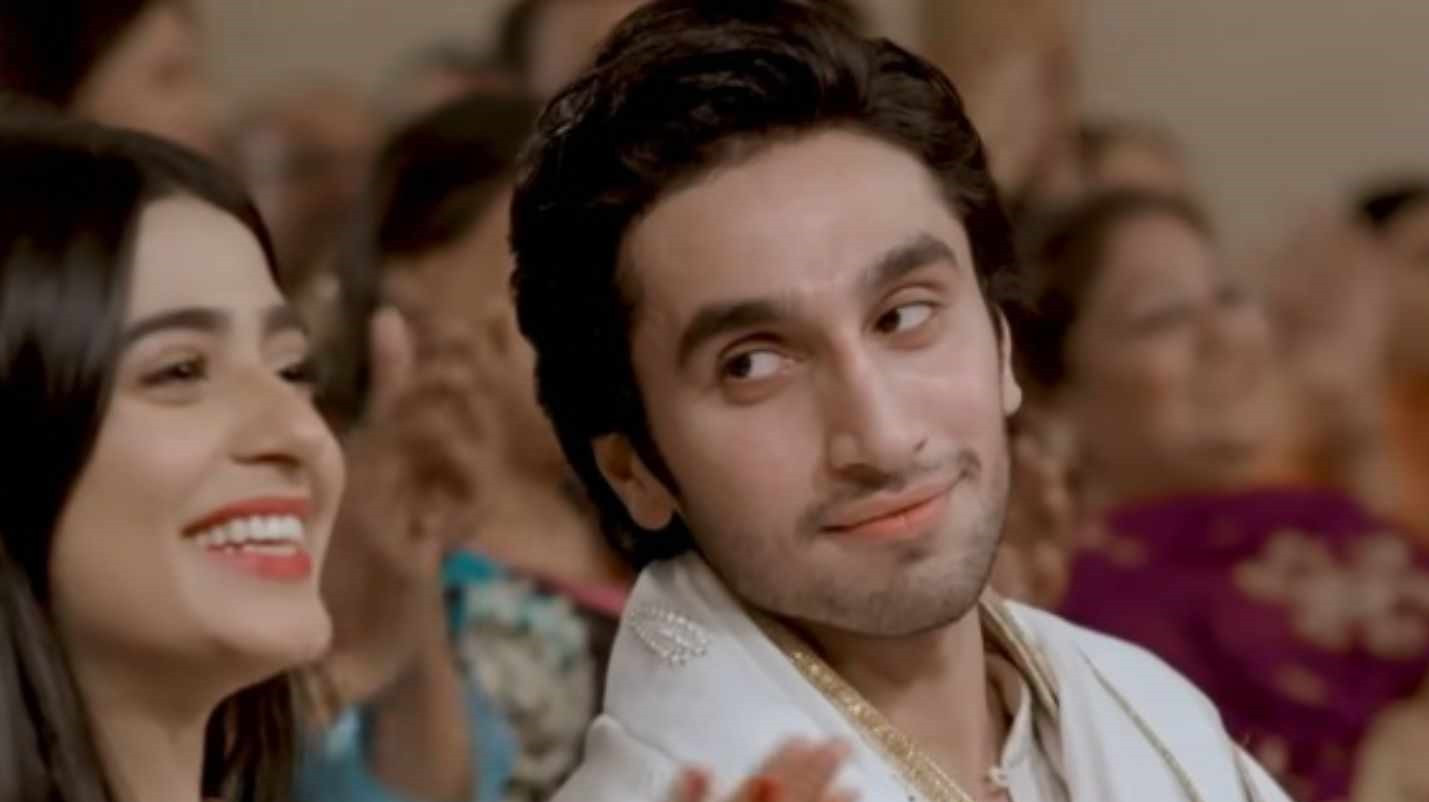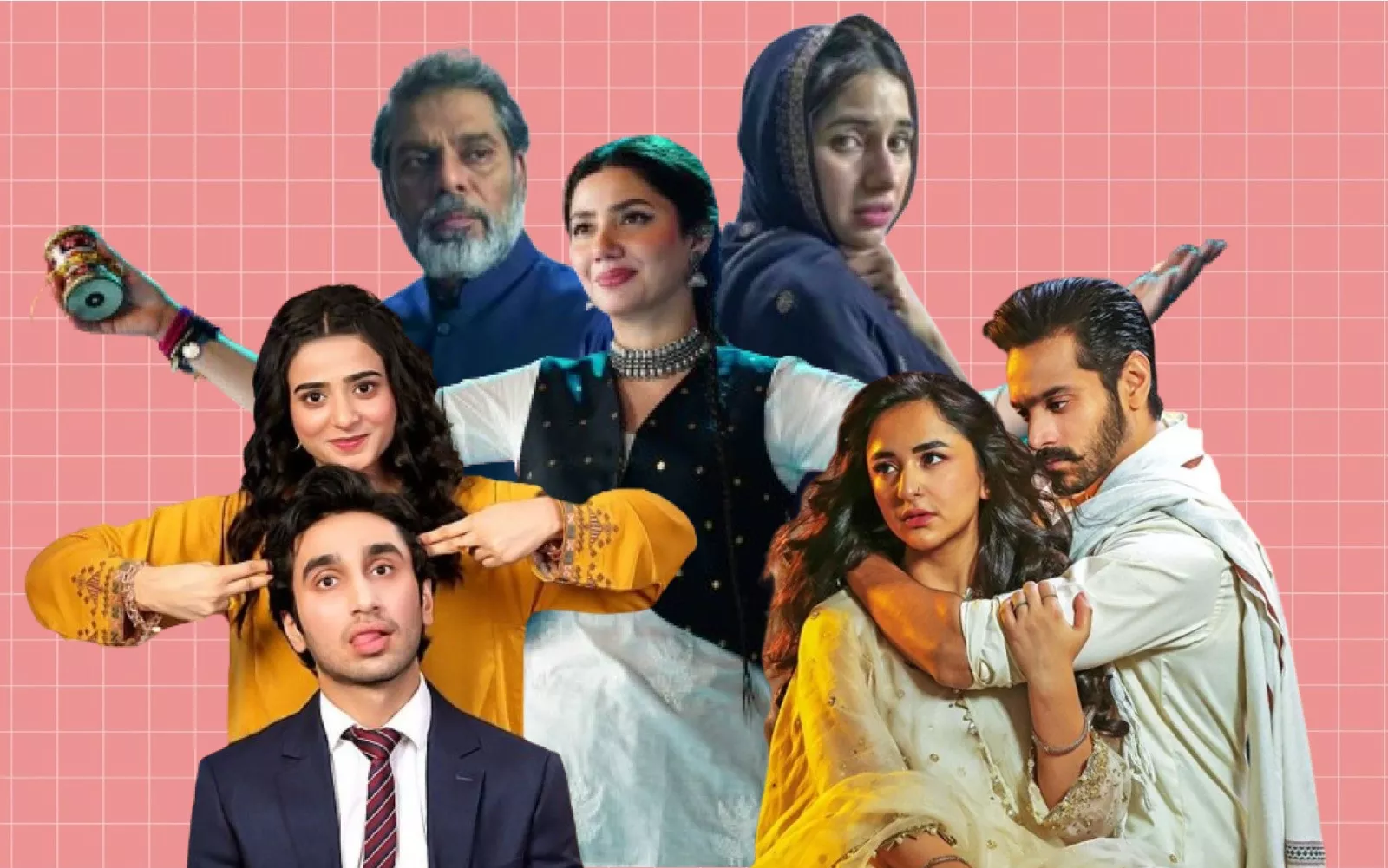2023 in dramas: Unforgettable stories that ruled the small screen
From ‘Razia’ to ‘Fairy Tale’, here’s a look at TV dramas that will resonate beyond the year’s end
KARACHI:Between cosy living rooms and glitzy premieres, 2023 was a grand slam for Pakistan's entertainment scene. As the curtains drew open on this extraordinary year, the small screen did not disappoint drama enthusiasts. Sure, the past years brought us gems, but there's something about the dramas of 2023 that takes the game to a whole new level by breaking conventions. Fighting the status quo, offering heartfelt commentary, and delivering memorable romances, here is a snapshot of the year in dramas.
Razia
Guess who returned to the small screen in 2023, stealing hearts once again? None other than the beloved Mahira Khan, gracing us with her presence in the Mohsin Ali directorial miniseries, Razia on Express Entertainment. This series seamlessly slides into the familiar yet compelling tradition of shedding light on social issues while delivering top-notch entertainment.
1703573845-0/Screenshot-(327)1703573845-0.png)
In the titular role, Mahira breathes life into Razia, a character that serves as a powerful reflection of how patriarchy continues to wield influence over women's lives in various aspects. Supported by moving performances from Mohib Mirza and Moomal Sheikh as her parents, the storyline revolves around Razia, an unwanted daughter in a family yearning for sons.
Sure, the premise might sound familiar, but Mohsin's directorial finesse takes Razia's character to new heights. With a perfect blend of punch and wit, Razia stands tall, refusing to be a victim of a discriminatory system. This isn't your typical damsel in distress – Razia portrays women as they truly are, sometimes defiant, and at other times, complicit. Among the plethora of TV offerings, fans can't get enough of Mahira's poignant narration and Shaheera Jalil's exceptional debut, making Razia a series worth watching on repeat.
Kabuli Pulao
No doubt, Kabuli Pulao stands tall as one of the best this year, captivating audiences far and wide with its unique narrative prowess. Under the creative guidance of writer Zafar Meraj and director Kashif Nisar, this drama weaves an unconventional love saga between Barbeena, a widowed Afghan refugee played by the talented Sabeena Farooq, and the middle-aged Pakistani Haji Mushtaq, portrayed by Muhammad Ehteshamuddin. Bound by unusual circumstances into matrimony, the duo faces a barrage of challenges, from Mushtaq's spurned childhood flame to an arrogant ASI officer and a scheming brother-in-law.

Mushtaq swiftly emerged as one of television's cherished protagonists, embodying a rare blend of religious devotion and worldly wisdom. On the flip side, Sabeena's nuanced performance beautifully encapsulates the struggles of countless refugees living in Pakistan.
The resounding acclaim, particularly for Sabeena, underscores the significance of bringing diverse stories to the forefront, challenging the tried-and-true norms of storytelling. In a narrative landscape often saturated with saas-bahu conflicts, Kabuli Pulao's focus on refugees and resilient women is a breath of fresh air, marking a delightful departure from the norm.
Tere Bin
If you're a die-hard fan of Pakistani television dramas, chances are you've spotted the ensemble cast led by Wahaj Ali and Yumna Zaidi in the captivating roles of Murtasim and Meerab. With heavyweights like Bushra Ansari, Sohail Sameer, Sabeena Farooq, and more in supporting roles, this drama promised a star-studded experience.

Sure, Tere Bin might have cranked up the melodrama meter a tad too high, but let's be real—it's a guilty pleasure that crossed borders for a reason. Breaking away from the usual clichés, Tere Bin brought us Murtasim, hailing from an influential feudal family in Hyderabad, and Meerab, a Karachi-bred dreamer with aspirations of donning the lawyer's hat.
Amidst societal norms and familial expectations, Meerab's quest for autonomy clashed with Murtasim's reluctance to conform, adding layers of complexity to the storyline. Tere Bin deftly tackled themes of consent and compatibility, shining a spotlight on the importance of individual agency in life decisions.
Fairy Tale
If you missed out on Fairy Tale this Ramazan, you might want to catch up ASAP. Directed by the talented Ali Hasan and penned by Sarah Majeed, Fairy Tale brought a breath of fresh air to Pakistani television with its charming mix of romance and comedy that lingered long after the Eid celebrations, airing its second season shortly after.

At the heart of this modern fairytale is the spirited Umeed, played by the delightful Sehar Khan, who's on a mission to strike it rich, come what may. Enter fate, in the form of the pragmatic businessman Farjad, portrayed by the versatile Hamza Sohail, and you've got the perfect recipe for a series of serendipitous encounters. Think Aditya and Geet's iconic first meeting in Jab We Met or the witty banter between Qabacha and Sanya in Tanhaiyaan—Fairy Tale puts a fresh spin on the classic romance between a quirky heroine and a brooding hero.
Sehar's impeccable comedic timing and knack for getting into trouble, sometimes bordering on selfishness, add layers to her character, while Hamza effortlessly navigates Farjad's serious yet easily annoyed demeanor, showcasing his prowess in both drama and comedy. The side-plot romance between Sameer (Adnan Raza Mir) and Haya (Aena Khan) unfolds with a touch of order amidst the chaos, making Fairy Tale a well-rounded and thoroughly entertaining watch.
Have something to add to the story? Share it in the comments below.


COMMENTS
Comments are moderated and generally will be posted if they are on-topic and not abusive.
For more information, please see our Comments FAQ